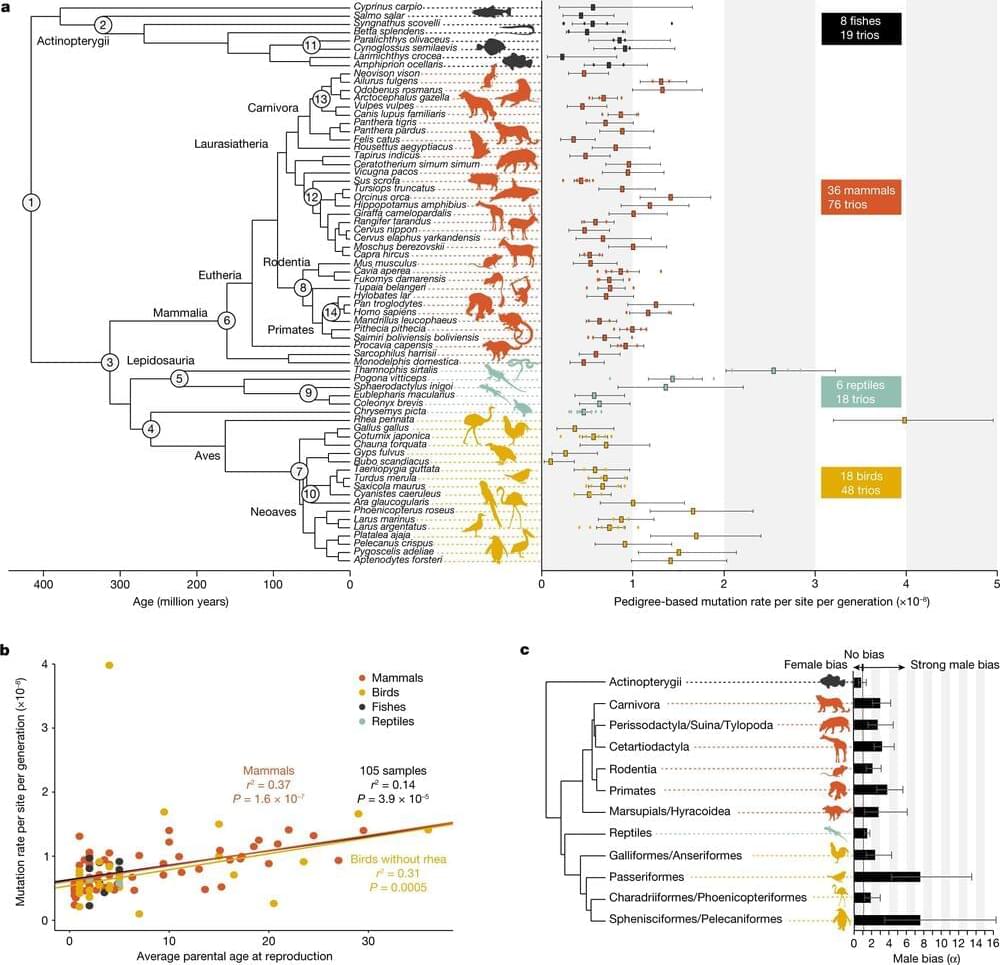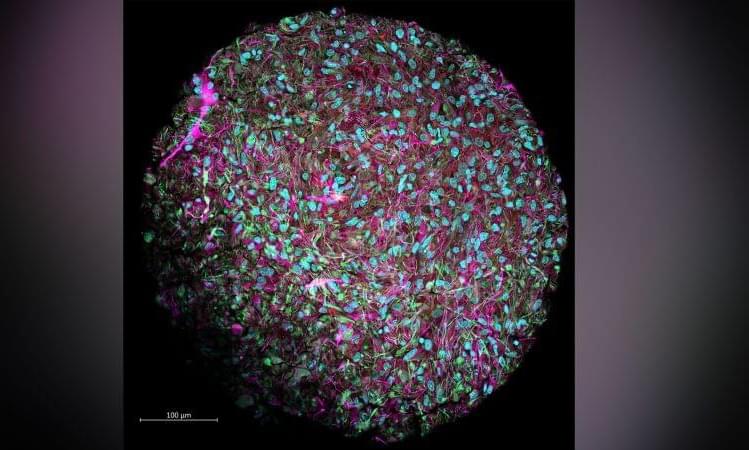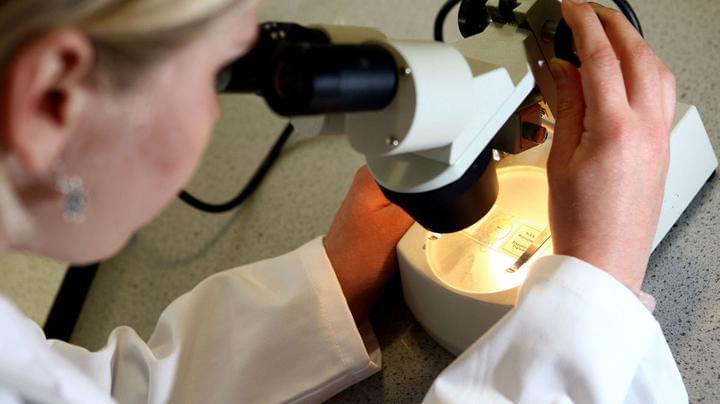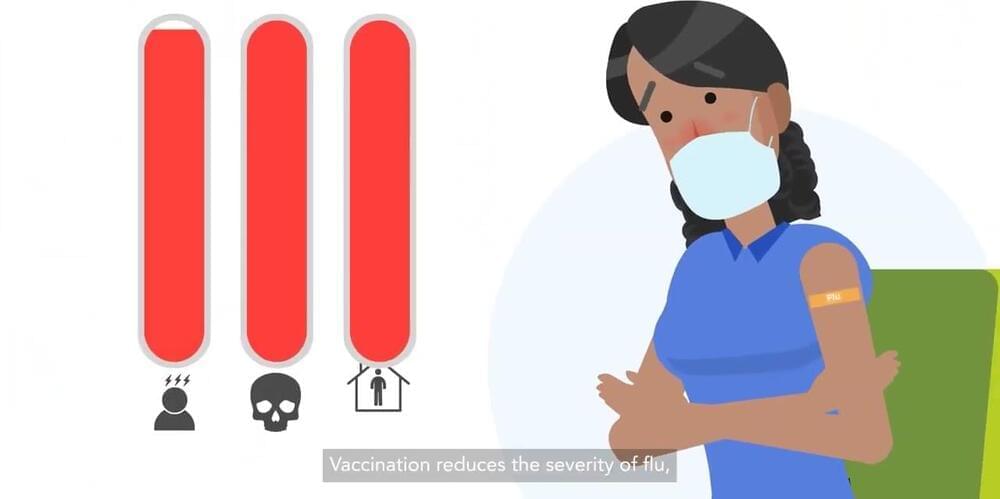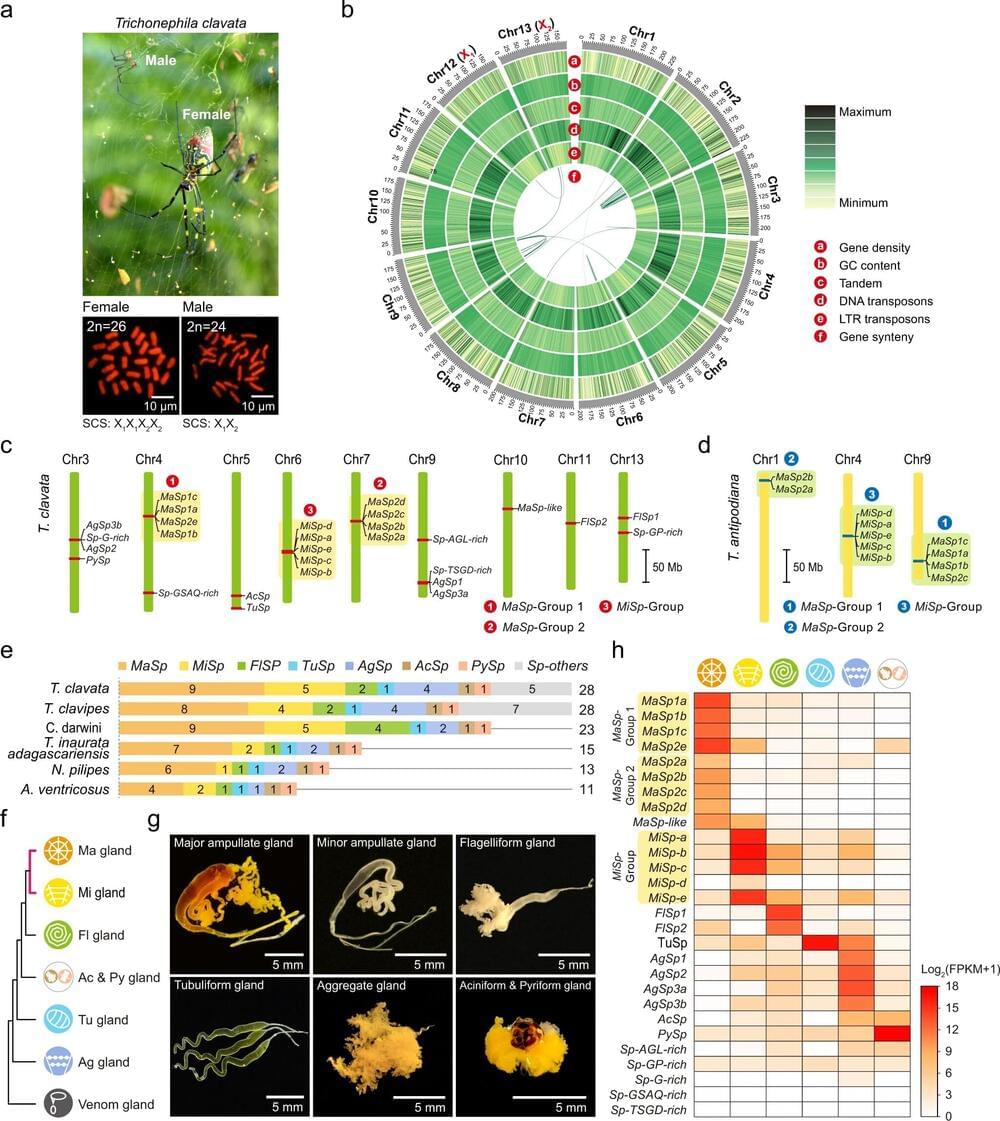Mar 4, 2023
Determining the tempo of evolution across species
Posted by Dan Breeden in categories: biotech/medical, evolution, genetics
Scientists from Denmark and China have estimated germline mutation rates across vertebrates by sequencing and comparing genetic samples from 151 mother, father, and offspring trios from 68 species of mammals, fishes, birds and reptiles. A bioinformatics pipeline was designed to read, analyze and compare the genome mutations that occur yearly and between generations in each species.
The research was published March 1, 2023, in the journal Nature.
Knowing the germline mutation rate could allow a greater understanding of evolutionary drivers and be used to estimate when a species first arose. Despite the variety of evolutionary paths seen in 68 different species, researchers found the germline mutation rate to be relatively conserved.
